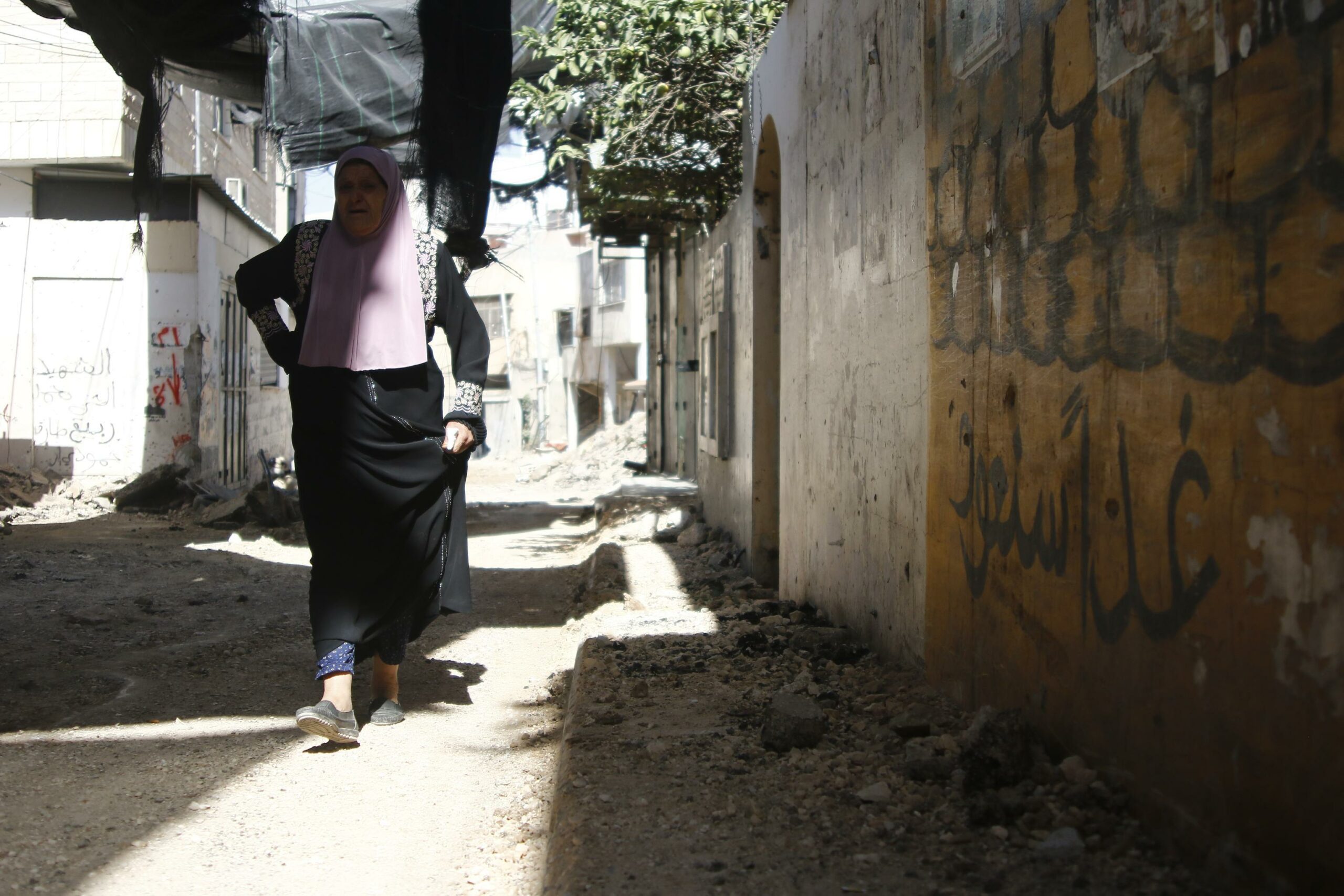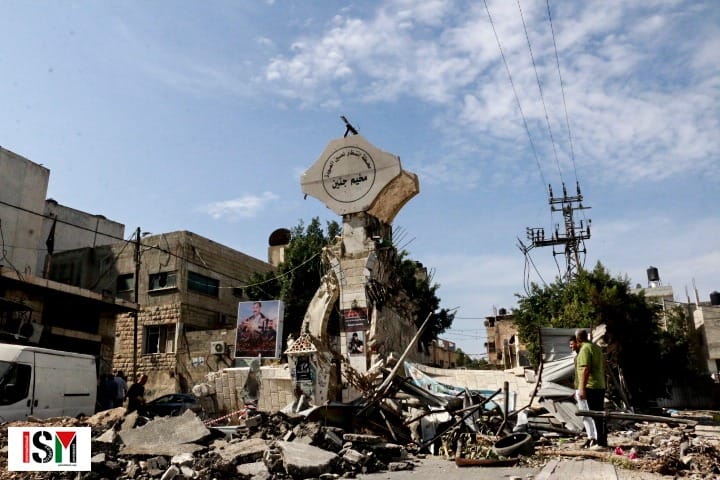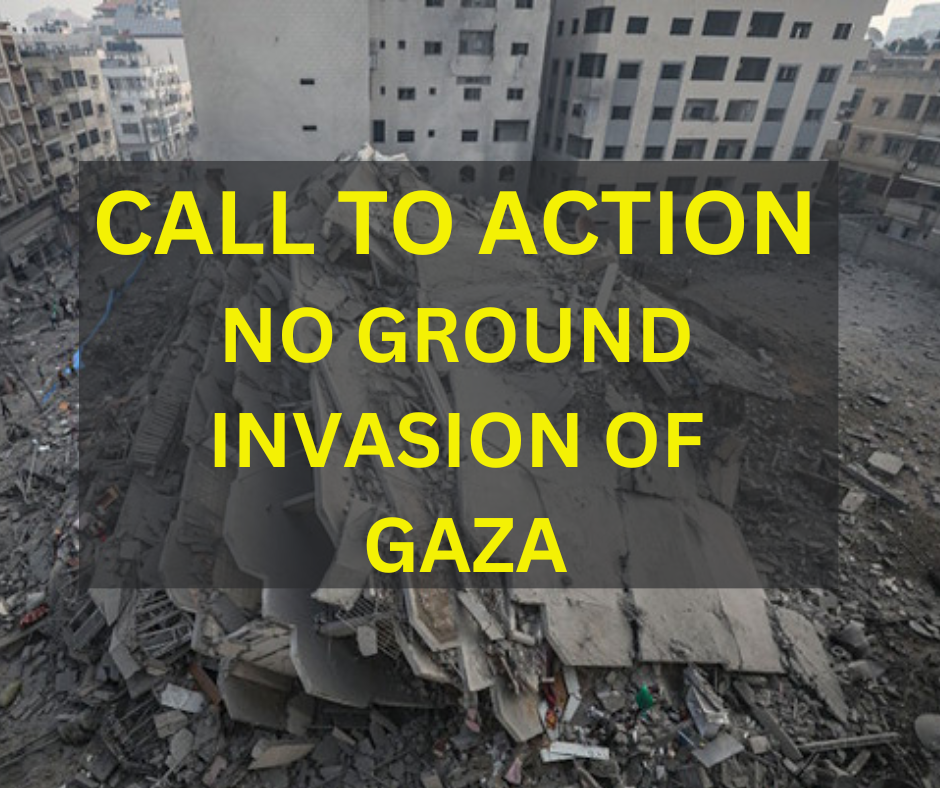Tag: Israeli Army
-
The Israeli occupation commits new massacres in Jenin Camp, killing 15 Palestinians
10 November 2023 | International Solidarity Movement | Jenin By Diana Khwaelid On Thursday morning Nov. 10th 2023, the Israeli occupation forces stormed the Jenin refugee camp in the northern West Bank. A military operation that lasted 24 hours was carried out by the Israeli Occupation Forces in the Jenin camp with the aim of…
-
Israeli forces bulldoze Jenin monument in deadly night raid
1 November 2023 | Jenin | International Solidarity Movement By Diana Khwaelid On Sunday, October 29, a huge column of military vehicles stormed the city of Jenin in an overnight raid, killing four Palestinians, and destroying a monument for Jenin’s martyrs. Israeli soldiers invaded the city’s Jenin camp at 12.30am, accompanied by an armed…
-
CALL TO ACTION: No Ground Invasion of Gaza
13 October, 2023 | International Solidarity Movement Occupation forces have issued a 24-hour deadline for 1.1 million civilians in northern Gaza to evacuate to the southern parts of the besieged enclave. The demand for a harrowing evacuation of terrified civilians includes an order to clear out all UN workers from the area. This is obvious…



